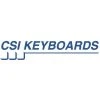In a world where technology is constantly evolving, user interfaces play a pivotal role in our interactions with electronic devices. Enter Custom Keypads, a versatile and adaptable solution that empowers designers and engineers to create unique and tailored interfaces for a wide range of applications. In this in-depth exploration, we will delve into the realm of Custom Keypads, uncovering their functionality, applications, benefits, and the creative possibilities they offer.
Understanding Custom Keypads
Custom Keypads, as the name suggests, are user interface components designed to meet specific requirements and preferences. Unlike off-the-shelf keypads, which have predefined layouts and designs, custom keypads are crafted from scratch, allowing for a high degree of personalization. Here's a closer look at how custom keypads work and what sets them apart:
Tailored Design:The defining characteristic of custom keypads is their tailor-made design. Every aspect, from the layout and shape of the keys to the labeling and overall aesthetics, is customized to match the unique needs of the application. Versatile Materials:Custom keypads can be crafted from various materials, including silicone rubber, membrane, or even capacitive touch sensors. The choice of material depends on factors such as durability, tactile feedback, and environmental considerations. Complex Circuitry:The circuitry of custom keypads is designed to accommodate the specific functionality required for the application. This includes determining the type of switch technology, whether it's a mechanical switch, capacitive touch, or other sensor-based technology. Integration Capability:Custom keypads are engineered to seamlessly integrate with the device they are intended for. This involves considerations like connectivity, size, and mounting options.Applications of Custom Keypads
Custom Keypads offer a wide range of possibilities across various industries. Their adaptability and personalized design make them suitable for an array of applications, including:
Medical Devices:Custom keypads are commonly used in medical equipment, such as diagnostic devices, patient monitors, and surgical instruments.They can be tailored to meet the specific requirements of medical professionals while ensuring ease of use and sterilization. Industrial Control Panels:Manufacturing and automation industries benefit from custom keypads in control panels for machinery and equipment.Their rugged design and resistance to harsh environments make them ideal for industrial settings. Consumer Electronics:Custom keypads can enhance the user experience in consumer electronics, including remote controls, gaming consoles, and home appliances.Designers have the creative freedom to match the branding and user interface aesthetics of the device. Automotive:Automobile manufacturers integrate custom keypads into vehicle dashboards, steering wheel controls, and infotainment systems.These keypads provide a personalized and user-friendly interface for drivers and passengers. Aerospace and Military:The reliability and durability of custom keypads make them crucial components in aircraft, spacecraft, and military equipment.They can withstand extreme conditions and rigorous use.Benefits of Custom Keypads
The advantages of custom keypads are numerous and make them an appealing choice for various industries:
Tailored Functionality: Custom keypads are designed to meet the specific needs of the application, ensuring that every button and feature serves a purpose. Branding and Aesthetics: Designers have the creative freedom to match the device's branding and user interface aesthetics, enhancing the overall user experience. Durability: Custom keypads can be engineered to withstand harsh environments, making them suitable for industrial, medical, and aerospace applications. Integration: They are seamlessly integrated into devices, ensuring compatibility and efficient performance. User-Friendly: Custom keypads are designed with user comfort and ease of use in mind, resulting in a more intuitive interface.Unlocking Creative Possibilities with Custom Keypads
The creative possibilities with custom keypads are virtually limitless. Designers and engineers have the opportunity to innovate and create user interfaces that not only meet functional requirements but also elevate the user experience. Some creative avenues include:
3D Shapes: Custom keypads can be molded into 3D shapes and designs, adding a tactile and visually appealing dimension to the interface. Backlighting: Integration of backlighting options allows for enhanced visibility in low-light conditions, providing an aesthetic edge. Touch Sensitivity: Capacitive touch technology can be employed for sleek, touch-sensitive custom keypads, offering a modern and responsive interface. Haptic Feedback: The incorporation of haptic feedback technology provides users with tactile confirmation of keypresses, further enhancing the user experience. Wearable Technology: Custom keypads are well-suited for wearable technology, enabling comfortable and unobtrusive user interfaces in devices like smartwatches and fitness trackers.The Future of Custom Keypads
As technology continues to advance, custom keypads are expected to evolve in tandem with industry trends and innovations. Some potential developments to watch for include:
Enhanced Materials: Advancements in materials science may lead to even more durable and environmentally friendly options for custom keypads. Integration with IoT: Custom keypads will continue to play a significant role in the Internet of Things (IoT) ecosystem, facilitating user interactions with smart devices. Sustainability: The industry may see an increased focus on sustainable materials and manufacturing processes to align with environmental goals. Advanced Sensing Technology: Continued innovation in sensing technology will lead to more responsive and sophisticated custom keypad interfaces.In summary, custom keypads represent a canvas of innovation in user interface technology. Their ability to be tailored to specific needs, combined with the potential for creative designs and functionalities, makes them a vital component in various industries. As technology continues to advance, custom keypads will remain at the forefront of user interface innovation, ensuring that our interactions with electronic devices are not only efficient but also uniquely tailored to our needs and preferences.



